Question of the Week | 4 Meds and A1c of 8.9%

JR is on metformin 2000mg, empagliflozin 25mg, semaglutide 1.0mg and 100 units of glargline insulin. A1C is 8.9% and JR weighs 100kg.
What best describes this clinical picture?
- Overbasalization
- Non-compliance
- Fear of hypoglycemia
- Clinical inaction
Click here to test your knowledge!

Whether you are new to diabetes or a seasoned expert, you’ll benefit from this virtual conference with the latest research plus critical content that you can immediately apply to your clinical practice.
Entire Program Fee: $399
Program Flyer: Download
Dates: April 15-17
Live Webinar Schedule: All webinars start and end times are in Pacific Standard Time
Program Schedule & Expert Bios
What is the Diabetes Educator Course?
If you are interested in taking the CDCES or BC-ADM exam or are seeking a state of the art review of current diabetes care, this course is for you. Our team of expert faculty has been fine-tuning this course for over fifteen years, and we know what you need. In addition to informative lectures, we also use group activities and case studies to highlight the essential knowledge, skills, and strategies needed to succeed in diabetes education today!
In this course, the same speakers will cover the same content as outlined in the Live Seminar. For more details see our Virtual DiabetesEd Specialist Conference Schedule and Faculty.
Prepare for CDCES or BC-ADM certification or earn hours for renewal.
Come join our Virtual DiabetesEd Specialist Program.
Your registrations include access to all the Online Sessions plus Bonus Courses through December 31st, 2021.
This virtual program includes:
3 day live webinar courses from April 15th-17th (20 CEs) + enrollment in our Bonus Bundle (14.0+ CEs) from now through December 2021.
- Live Q & A Session with the instructor after each webinar
- Presentations by our team of experts
- Handouts and Resources for each session
- Post-test questions
- A sense of community
- If you can’t attend the live webinars, a recorded version will be posted later the same day for viewing.
View full Conference Schedule and Faculty.
Sign up for Diabetes Blog Bytes – we post one daily Blog Byte from Monday to Friday. And of course, Tuesday is our Question of the Week. It’s Informative and FREE! Sign up below!
[yikes-mailchimp form=”1″]Accreditation: Diabetes Education Services is an approved provider by the California Board of Registered Nursing, Provider 12640, and Commission on Dietetic Registration (CDR), Provider DI002. Since these programs are approved by the CDR it satisfies the CE requirements for the CDCES regardless of your profession.*
The use of DES products does not guarantee the successful passage of the CDCES exam. CBDCE does not endorse any preparatory or review materials for the CDCES exam, except for those published by CBDCE.
Prep for CDCES Exam 2021 Free Webinar | January 11th
Studying for the CDCES exam?
Join Coach Bev for a FREE Webinar with updates on the CDCES Exam 2021

January 11, 2021, from 11:30 a.m. – 12:45 p.m. (PST)
Unsure about updates for this mastery level 2021 exam?
Join us to get ready to succeed a the CDCES Exam. This course will transform your test anxiety into calm self-confidence and test-taking readiness.
Topics Covered Include:
- Changes in test philosophy for 2021
- Exam eligibility and test format
- Strategies to succeed
- Review of study tips and test-taking practice questions.
We will review sample test questions and the reasoning behind choosing the right answers. After registering, you will receive a confirmation email containing information about joining the webinar.
See our Prep for CDCES Resource Page
Instructor: Beverly Thomassian RN, MPH, CDCES, BC-ADM is a working educator who has passed her CDCES Exam 6 times. She is a nationally recognized diabetes expert for over 25 years.
ADCES Desk Reference 2020 + 5th Ed Review Guide Book Bundle
The 5th Edition ADCES Desk Reference & 5th Edition Review Guide Bundle –our most popular AADE Book Bundle for exam preparation!
What is included in the ADCES Book Bundle?
The Art & Science of Diabetes Self-Management Education Desk Reference – 5th Edition
Major Features:
- practical information educators can use with patients to avoid complications and comorbidities
- risks and benefits of CGM and the educator’s role in working with patients who use CGM
- updated info on incorporating the ADA, AADE, and AND joint position statement and algorithm of care into a DSME program
ADECES Review Guide for the Diabetes Care and Education Specialist Exam – 5th Edition
Includes an answer key with rationales for all questions included in the guide!
Major Features:
- 480 + multiple-choice questions
- Strategies for preparing for and taking the exam
3 self-assessment tests that cover three main content sections on the CDCES Exam:
- Assessment of Diabetes and Prediabetes
- Interventions for Diabetes and Prediabetes
- Disease Management
Sign up for Diabetes Blog Bytes – we post one daily Blog Byte from Monday to Friday. And of course, Tuesday is our Question of the Week. It’s Informative and FREE! Sign up below!
[yikes-mailchimp form=”1″]
Accreditation: Diabetes Education Services is an approved provider by the California Board of Registered Nursing, Provider 12640, and Commission on Dietetic Registration (CDR), Provider DI002. Since these programs are approved by the CDR it satisfies the CE requirements for the CDCES regardless of your profession.*
The use of DES products does not guarantee the successful passage of the CDCES exam. CBDCE does not endorse any preparatory or review materials for the CDCES exam, except for those published by CBDCE.
Rationale of the Week | Which New Year’s Resolution is SMART?

Our December 29th Question of the week had over 77% of respondents who chose the best answer!
Before we start though, if you don’t want any spoilers and haven’t tried the question yet, you can answer below: Answer Question
Question: JZ is excited for 2021 and wants to work on some New Year’s resolutions. Which of the following would be considered a SMART behavioral goal for the New Year?
Answer Choices:
- I will check my sugars every other day before breakfast for one month.
- I will exercise or lift weights even if I don’t feel motivated, for the next year.
- I plan to avoid sugary drinks, chips and candy, and junk foods.
- I commit to taking all of my medications daily and losing 3 pounds.
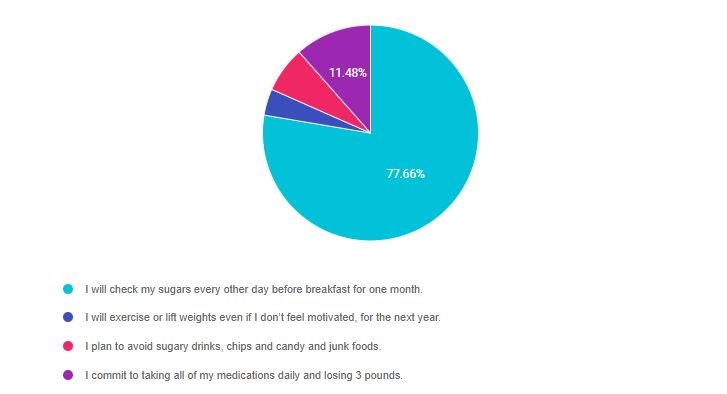
As shown above, the most common choice was option 1, the second most common answer was option 4, then option 3, and finally option 2.
Getting to the Best Answer
If you are thinking about taking the certification exam, the content of this practice test question will set you up for success. This question identifies if the test taker is familiar with SMART Goals. Get rid of weak answers first and choose the best answer.
SMART Goals
The SMART acronym stands for Specific-Measurable-Achievable-Realistic and Timely. All of these constructs are important to consider when helping a client create a behavioral goal. By helping people narrow down their behavior change goal, making it as specific and realistic as possible, we increase likelihood of success.
Answer 1 is correct. 77.66% chose this answer. “I will check my sugars every other day before breakfast for one month.” This is specific (I will check sugars every other day), Achievable (not too burdensome), Realistic (I can do it), Timely (for one month). This goal meets all the criteria!
Answer 2 is incorrect. 3.95% of you chose this answer. “I will exercise or lift weights even if I don’t feel motivated, for the next year.” This is not specific (I will lift weights even if I don’t feel motivated), not Achievable (how are they going to over come lack of motivation), not Realistic (Hard to determine), Timely (for next year). This goal meets one of the criteria!
Answer 3 is incorrect, 6.86% of you chose this answer “I plan to avoid sugary drinks, chips and candy, and junk foods.” This is specific (I plan to avoid sugary drinks, chips and candy, and junk foods ), not Achievable (to avoid of the foods at once sounds very difficult), not Realistic (Hard to determine), not Timely (no time frame). This goal meets one of the criteria!
Answer 4 is incorrect, 11.48% of you chose this answer. “I commit to taking all of my medications daily and losing 3 pounds.” This is not specific (How is this person going to lose 3 pounds, what behaviors are they going to change?), Achievable (losing 3 pounds seems achievable), could be Realistic (Hard to determine), not Timely (no time frame). This goal meets one or two of the criteria!
We hope you appreciate this week’s rationale! Thank you so much for taking the time to answer our Question of the Week and participate in this fun learning activity!
Level 1 – Diabetes Fundamentals 2021 Updates
This series is designed for health care professionals who are interested in getting started in diabetes education and for those actively working toward becoming a Certified Diabetes Care and Education Specialist. Each course in this series provides the critical building blocks and foundation for those entering the diabetes field. Plus, they prepare you to advance to our Level 2 Standards of Care Intensive Courses.
Join us for our 2021 Live Webinar Updates. All courses air at 11:30 a.m. (PST)
- January 12, 2021 – Class 1 – Getting to the Nitty Gritty 1.5 CEs
- January 14, 2021 – Class 2 -Nutrition and Exercise 1.5 CEs
- January 19, 2020 – Class 3 – Insulin Therapy & Pattern Management 1.5 CEs
- January 21, 2021 – Class 4 – Meds Overview for Type 2 – 1.5 CEs
- January 26, 2021 – Class 5 – Goals of Care 2020 – 1.5 CEs
- January 28, 2021 – Class 6 – Hypoglycemia, Sick Days, Monitoring, Foot Care 1.5 CEs

Instructor: Beverly Thomassian RN, MPH, CDCES, has been Board Certified in Advanced Diabetes Management for over 20 years. She is an Associate Clinical Professor at UCSF and Touro University and a nationally recognized diabetes expert.
Sign up for Diabetes Blog Bytes – we post one daily Blog Byte from Monday to Friday. And of course, Tuesday is our Question of the Week. It’s Informative and FREE! Sign up below!
[yikes-mailchimp form=”1″]
Accreditation: Diabetes Education Services is an approved provider by the California Board of Registered Nursing, Provider 12640, and Commission on Dietetic Registration (CDR), Provider DI002. Since these programs are approved by the CDR it satisfies the CE requirements for the CDCES regardless of your profession.*
The use of DES products does not guarantee the successful passage of the CDCES exam. CBDCE does not endorse any preparatory or review materials for the CDCES exam, except for those published by CBDCE.
Umami – Embracing Rich & Luscious Foods | Dawn DeSoto
Roughly 22% of adults report having gained weight during the COVID-19 pandemic. (1)
COVID-19 has created a perfect storm for gaining unwanted weight. Insomnia, loneliness, depression, anxiety, decreased physical activity, and disruptions in our daily routines have increased chronic stress in our lives which can increase levels of the stress hormone cortisol. Cortisol is associated with increased food cravings and weight gain. (2)
Could consuming more umami increase enjoyment without increasing calorie intake?

Lately, I have been intrigued by the idea that the addition of umami could possibly help us achieve weight loss and increase our enjoyment of foods at the same time. Research shows foods with umami flavors tend to reduce people’s appetite without cutting their satisfaction with the meal. (5)
Umami is that rich, deep, indescribable flavor of lusciousness
Umami is that rich, deep, indescribable flavor of lusciousness found in foods like Parmesan cheese, cured pork products, grilled or roasted meats, sausage, and soups and stews that have been slow-cooked for a long period of time. It occurs when glutamate breaks down into L-glutamate via fermentation, braising, or ripening. Glutamate alone, however, cannot produce the full flavor of umami. Instead, it arises from the combination of glutamate and ribonucleotides, molecules that serve as the building blocks for DNA and RNA. Interesting to me is that glutamate is also abundant in human breast milk; in fact, human milk contains as much glutamate as most savory broths.
When we taste something and our mouth waters, that is umami.
In 2000 scientists at the University of Miami identified the first umami receptor on the taste buds lining the surface of our tongues. Mushrooms, especially dried shiitake mushrooms, are rich in umami. Umami-rich ingredients can be found in cooking ingredients/condiments. Naturally brewed soy sauce, Marmite, anchovy relish, miso, tomato puree, fish sauce, and Worcestershire sauce are all great sources of umami. Recently, many seasoning products have been developed with umami as the goal – such as Takii Umami Powder-Magic Shiitake Mushroom Seasoning, Trader Joe’s Mushroom & Company Multipurpose UMAMI Seasoning Blend, and Taste No 5 Umami Paste.
Umami discovered over 100 years ago by a chemist enjoying broth

Umami was named more than a century ago by Kikunae Ikeda a chemist at Tokyo University. As Dr. Ikeda savored a simple bowl of broth, he pondered the nature of deliciousness. How was it a lightly simmered mixture of water, dried fish flakes, and a little bit of dried seaweed that could be so mouthwatering?
Dashi, the broth that set Ikeda on his quest in 1907, maintains an essential place in Japanese cuisine to this day. Over the course of a year, Dr. Ikeda boiled kombu, the dried seaweed, down into a tarry resin and stripped out salts and other organic compounds one by one. In the end, Dr. Ikeda harvested a single ounce of crystals strongly resembling the flavor of his bowl of dashi-a flavor that he called umami (roughly translated from the Japanese word for “delicious”).
The crystals producing the umami flavor turned out to be the amino acid glutamate. Hoping to provide cooks easy access to umami, he learned how to produce it in industrial quantities and patented the notorious flavor enhancer monosodium glutamate (MSG).
MSG – amino acid glutamate – creates umami taste.
MSG was popular in the American food supply for decades. However, since 1968 the chemical has received bad publicity despite dozens of studies concluding that MSG is safe and the purported negative health claims found to have little supporting evidence. (6) Currently, MSG is popular in processed foods such as canned soups, frozen dinners, cold cuts, dressings, and Doritos. MSG can help reduce sodium in dishes without compromising flavor because of umami. MSG contains 1/3 the amount of sodium as table salt.
Since the pandemic, I have been cooking more and experimenting with creating physically nourishing and emotionally satisfying meals. Consciously including umami has been an exciting part of this experiment.
Smoky Roasted Mushrooms Recipe

Directions: Toss 2 pounds whole mixed mushrooms, 1 ½ tablespoons olive oil, and salt and pepper to taste in a bowl. Spread on a baking dish and roast at 425 degrees F, stirring a few times, until tender and browned for 30 to 35 minutes. Cook 3 thinly sliced garlic cloves and ½ tsp smoked paprika in butter until soft, toss with the mushrooms. Sprinkle with chopped parsley and salt. Enjoy.
This article is written by our resident nutrition expert, Dawn DeSoto, RD, CDCES
Citations
-Zachary Z, Brianna F, Brianna L, et al. Self-quarantine and weight gain related risk factors during the COVID-19 pandemic. Obes Res Clin Prat. 2020;14(3):210-216.
-Chao AM, Jastreboff AM, White MA, Grilo CM, Shinha R. Stress, cortisol, and other appetite-related hormones: Prospective prediction of 6-month changes in food cravings and weight. Obesity (Silver Spring). 2017 Apr:2594):713-720
-CDC November 19, 2004/53(45);1066-1068. Prevalence of Overweight and Obesity Among Adults with Diagnosed Diabetes-United States, 1988-1994 and 1999-2002
-Menke A, Casagrande S, Geiss L, Cowie CC. Prevalence of the Trends in Diabetes Among Adults in United States, 1988-2012. JAMA. 2015 Sep 8; 314(10):1021-9
-Masic U, Yeomans MR. Umami flavor enhances appetite but also increases satiety. The American Journal of Clinical Nutrition, Volume 100, Issue 2, August 2014, Pages 532-538.
-Zanfirescu A, Ungurianu A, Tsatsakis AM, Nitulescu GM, Kouretas D, Veskoukis A, Tsoukalas D, Engin AB, Aschner M, Margina D. A Review of the Alleged Health Hazards of Monosodium Glutamate. Compehensive Reviews in Food Science and Food Safety. 2019 May 8/18(4):1111-1134
Level 1 – Diabetes Fundamentals 2021 Updates
This series is designed for health care professionals who are interested in getting started in diabetes education and for those actively working toward becoming a Certified Diabetes Care and Education Specialist. Each course in this series provides the critical building blocks and foundation for those entering the diabetes field. Plus, they prepare you to advance to our Level 2 Standards of Care Intensive Courses.
Join us for our 2021 Live Webinar Updates. All courses air at 11:30 a.m. (PST)
- January 12, 2021 – Class 1 – Getting to the Nitty Gritty 1.5 CEs
- January 14, 2021 – Class 2 -Nutrition and Exercise 1.5 CEs
- January 19, 2020 – Class 3 – Insulin Therapy & Pattern Management 1.5 CEs
- January 21, 2021 – Class 4 – Meds Overview for Type 2 – 1.5 CEs
- January 26, 2021 – Class 5 – Goals of Care 2020 – 1.5 CEs
- January 28, 2021 – Class 6 – Hypoglycemia, Sick Days, Monitoring, Foot Care 1.5 CEs

Instructor: Beverly Thomassian RN, MPH, CDCES, has been Board Certified in Advanced Diabetes Management for over 20 years. She is an Associate Clinical Professor at UCSF and Touro University and a nationally recognized diabetes expert.
Sign up for Diabetes Blog Bytes – we post one daily Blog Byte from Monday to Friday. And of course, Tuesday is our Question of the Week. It’s Informative and FREE! Sign up below!
[yikes-mailchimp form=”1″]
Accreditation: Diabetes Education Services is an approved provider by the California Board of Registered Nursing, Provider 12640, and Commission on Dietetic Registration (CDR), Provider DI002. Since these programs are approved by the CDR it satisfies the CE requirements for the CDCES regardless of your profession.*
The use of DES products does not guarantee the successful passage of the CDCES exam. CBDCE does not endorse any preparatory or review materials for the CDCES exam, except for those published by CBDCE.
Question of the Week | Exploring distress with LS

LS has type 1 diabetes and reports to clinic with unusually frequent hypoglycemia and some weight loss. LS appears distraught and says that since the pandemic, their work hours have been dramatically reduced and paying bills has been a struggle. Based on this information, which of the following topics would the diabetes specialist most want to explore further?
What is the best answer?
- Disordered eating
- Food insecurity
- Insulin rationing
- Diabetes distress
Click here to test your knowledge!
Want to learn more about this topic?
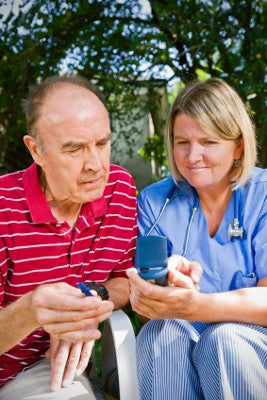
We have updated this course to reflect the 2021 ADA Standards of Care. This presentation includes the latest information on Social Determinants of health, assessment strategies, and approaches. We explore the psychosocial issues that can discourage individuals from adopting healthier behaviors and provides strategies to identify and overcome these barriers. Life studies are used to apply theory to real-life situations. A great course for anyone in the field of diabetes education or for those looking for a new perspective on assessment and coping strategies.
Topics include:
- Name assessment areas of healthy coping
- List psycho-social and emotional barriers
- Provide strategies for healthcare professionals to identify and overcome barriers
- Discuss strategies to develop an individualized diabetes education plan

Instructor: Beverly Thomassian RN, MPH, CDCES, has been Board Certified in Advanced Diabetes Management for over 20 years. She is an Associate Clinical Professor at UCSF and Touro University and a nationally recognized diabetes expert.
Sign up for Diabetes Blog Bytes – we post one daily Blog Byte from Monday to Friday. And of course, Tuesday is our Question of the Week. It’s Informative and FREE! Sign up below!
[yikes-mailchimp form=”1″]
Accreditation: Diabetes Education Services is an approved provider by the California Board of Registered Nursing, Provider 12640, and Commission on Dietetic Registration (CDR), Provider DI002. Since these programs are approved by the CDR it satisfies the CE requirements for the CDCES regardless of your profession.*
The use of DES products does not guarantee the successful passage of the CDCES exam. CBDCE does not endorse any preparatory or review materials for the CDCES exam, except for those published by CBDCE.
Diabetes Nerds Rejoice – ADA Standards 2021 are Here!
2021 ADA Standards include important changes that you won’t want to miss!
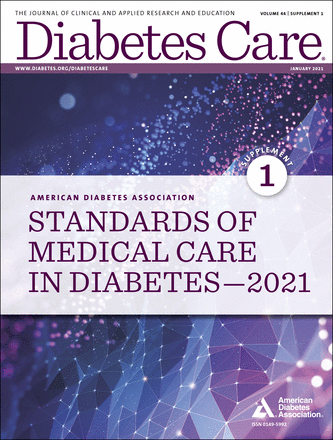
Diabetes nerds across the United States are staying up way past their bedtime to read the latest standards in diabetes! You can now revel in the updated ADA Standards in our CDCES Coach App. Dig into the latest diabetes care recommendations, while waiting for your Standards Booklet in the mail.
Or you can join Coach Beverly for a virtual webinar that will walk you through these critical updates for your clinical practice and exam success. Join our ADA Standards Live Webinar on February 2nd at 11:30 am PST!
There are some exciting changes in the 2021 Standards.
Based on my review of this playbook for Diabetes Specialists, here are some of the highlights:
- There is a focused blending of science and person-centered care, with an intentional exploration of uncovering barriers and exploring social determinants of health.
- A new powerful acronym was released. CRN – which stands for Cost-Related Medication Nonadherence. ADA is working to raise awareness of cost as a barrier to care and encourage care providers to address cost issues on a regular basis. Especially with the current economic crisis, finances are more of a barrier than ever.
- More clarification about Latent Autoimmune Diabetes in Adults.
- Immunization clarification. Finally, I completely understand the vaccine guidelines, which are more comprehensive and detailed than ever. Thank you, ADA.
- Given the shaming associated with a diabetes diagnosis, a new section on “mindful self-compassion” is included in the Facilitating Behavior Change section.
- The medication management section just keeps getting better. This year’s version is more straightforward while incorporating the newest research findings in an algorithm that is easy to follow.
- OVER basalization made the headlines in the Pharmacologic Approaches to Hyperglycemia section. Too much basal insulin is an issue that we encounter way too often. These guidelines help to clarify what is too much basal and offer possible solutions.
- Older adult guidelines include updates on glucose goals and prevention of hypoglycemia.
Want more details on the 2021 Standards?
Those are just some of the highlights, but there is so much more to discover. Please join Coach Beverly on February 2, 2021, at 11:30 am for her annual State of the Standards Live Webinar.
See complete Level 2 Standards of Care Webinar Schedule Here
Join Coach Beverly on February 2, 2021, for her annual
Level 2 – Standards of Care Update!
This course is an essential review for anyone in the field of diabetes. This course summarizes the 2021 updates to the American Diabetes Association’s Standards of Medical Care in Diabetes and provides critical teaching points and content for health care professionals involved in diabetes care and education.
Earn 2.0 CEs and get ready to lead the charge to implement best care practices for the New Year.
Topics Include:
- A review of changes and updates to the 2021 ADA Standards of Medical Care
- Identification of key elements of the position statement
- Discussion of how diabetes educators can apply this information in their clinical setting
Sign up for Diabetes Blog Bytes – we post one daily Blog Byte from Monday to Friday. And of course, Tuesday is our Question of the Week. It’s Informative and FREE! Sign up below!
[yikes-mailchimp form=”1″]
Accreditation: Diabetes Education Services is an approved provider by the California Board of Registered Nursing, Provider 12640, and Commission on Dietetic Registration (CDR), Provider DI002. Since these programs are approved by the CDR it satisfies the CE requirements for the CDCES regardless of your profession.*
The use of DES products does not guarantee the successful passage of the CDCES exam. CBDCE does not endorse any preparatory or review materials for the CDCES exam, except for those published by CBDCE.
Which Year’s ADA Standards will best prepare me for CDCES Exam?
One of the most frequently asked questions about the CDCES Exam is the following:
Should I study this year’s ADA Standards of Care or last year’s ADA Standards of Care?
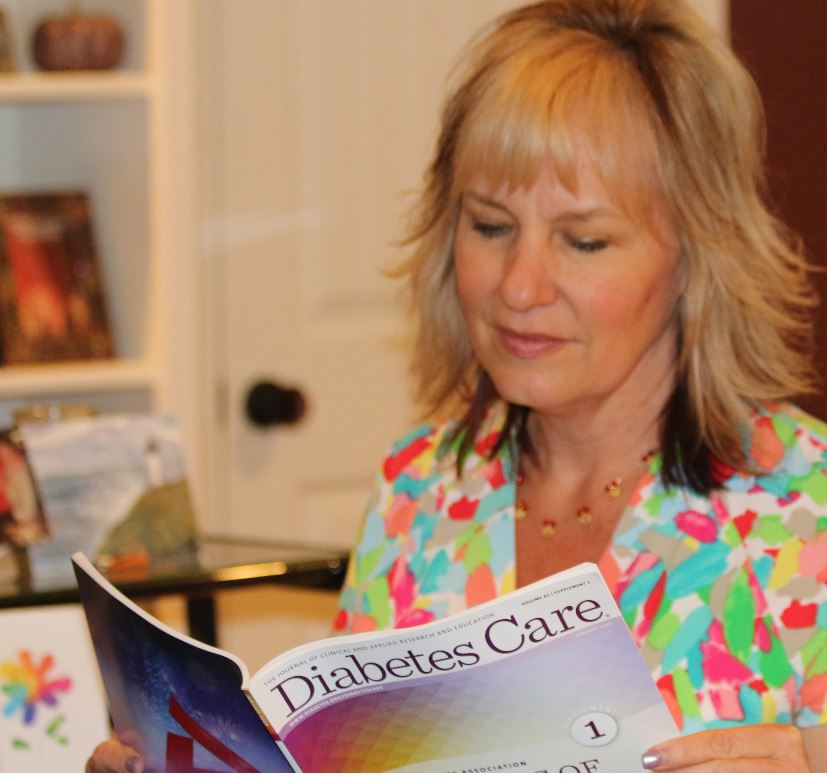
In this years exam handbook, the CBDCE provided clarification on this high anxiety topic.
CBDCE Exam Content Update Policy
Immediately – New diagnostic criteria or specific guidelines impacting diabetes care and education and/or treatment of diabetes which are released nationally and identified as effective immediately may be including in the examination at any time.
One Year – New medical advances, guidelines, or pharmaceuticals will be included in CDCES Exam no sooner than one year after the information is released.
What does this mean for us?
I have already read and reviewed the 2020 ADA Standards of Care.
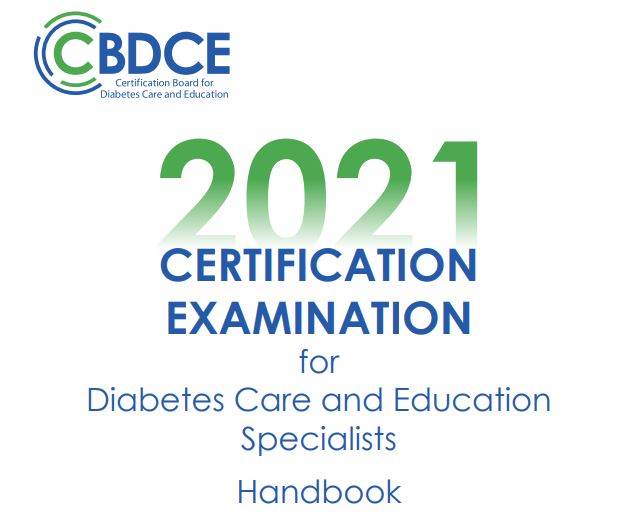
If you have already studied the ADA 2020 Standards of Care, you will be set for the 2021 CDCES Exam. Since there are no new diagnostic criteria or specific guidelines that are dramatically different from the 2020 Standards of Care.
The one exception is that there are updated diabetes management guidelines for the older population as outlined in our Older People Level 2 Course and you can review in the ADA Standards of Care, section 12.
Please see ADA Standards Summary of Revisions for more detailed information on updates for 2021.
I haven’t started reviewing the ADA Standards of Care.
Great. Please plan on studying the 2021 ADA Standards of Care, which includes all of the same content as the 2020 Standards with some additions and updates.
We are all rooting for your success! For More info:
- Download CDCES Coach App FREE for iOS or androids
- Join our Prep for CDCES Webinar FREE
Join our Prep for CDCES Webinar FREE for lots of great info and to get ready!
Join our Diabetes Ed Specialist Conference

Whether you are new to diabetes or a seasoned expert, you’ll benefit from this virtual conference with the latest research plus critical content that you can immediately apply to your clinical practice.
Entire Program Fee: $399
Program Flyer: Download
Dates: April 15-17
Live Webinar Schedule: All webinars start and end times are in Pacific Standard Time
Program Schedule & Expert Bios
If you are interested in taking the CDCES or BC-ADM exam or are seeking a state of the art review of current diabetes care, this course is for you. Our team of expert faculty has been fine-tuning this course for over fifteen years, and we know what you need. In addition to informative lectures, we also use group activities and case studies to highlight the essential knowledge, skills, and strategies needed to succeed in diabetes education today!
In this course, the same speakers will cover the same content as outlined in the Live Seminar. For more details see our Virtual DiabetesEd Specialist Conference Schedule and Faculty.
Prepare for CDCES or BC-ADM certification or earn hours for renewal.
Come join our Virtual DiabetesEd Specialist Program.
Your registrations include access to all the Online Sessions plus Bonus Courses through December 31st, 2021.
This virtual program includes:
3 day live webinar courses from April 15th-17th (20 CEs) + enrollment in our Bonus Bundle (14.0+ CEs) from now through December 2021.
- Live Q & A Session with the instructor after each webinar
- Presentations by our team of experts
- Handouts and Resources for each session
- Post-test questions
- A sense of community
- If you can’t attend the live webinars, a recorded version will be posted later the same day for viewing.
View full Conference Schedule and Faculty.
Accreditation: Diabetes Education Services is an approved provider by the California Board of Registered Nursing, Provider 12640, and Commission on Dietetic Registration (CDR), Provider DI002. Since these programs are approved by the CDR it satisfies the CE requirements for the CDCES regardless of your profession.*
The use of DES products does not guarantee the successful passage of the CDCES exam. CBDCE does not endorse any preparatory or review materials for the CDCES exam, except for those published by CBDCE.
ADA Standards of Care 2021 Webinars and Recorded Level 2 Courses

The ADA Standards inform our practice and are critical for certification exams success. We invite you to join our Level 2 course series.
Coach Beverly updates these Level 2 courses throughout the year. Your registration includes the recorded courses and an invitation to the live webinars – see dates below. Please be reassured that the 2020 courses are still accurate and relevant for this years’ exam and your clinical practice.
You can purchase and view all of these courses immediately. With your registration, you are automatically invited to the Live Webinar update.
Each course includes: Video presentation, podcast, handouts and resources. We hope you can join us!
| Record Date or Upcoming Date | Topic and Standards of Care |
| Feb 2, 2021 | Standards of Care Overview Annual Update All Standards |
| 2021 | Assessing Coping Skills 1.5 CEs 2021 Includes Standards 1 and 5 | Pop Health & Promoting Well Being |
| 2021 | Hyperglycemic Crisis 1.0 CEs Standard 15 | Diabetes Care in the Hospital |
| 2020 | Meds Management for Type 2 – 1.5 CEs Standard 9 | Pharmacologic Approaches to Glycemic Tx |
| April 28, 2021 | Critical Assessment of People with Diabetes 2.0 CEs Standard 4 | Comprehensive Medical Eval |
| April 21, 2021 | Lower Extremity Assessment 1.5 CEs Standards 11 | Foot Care |
| 2021 | Older Adults and Diabetes 1.5 CEs Standard 12 |Older Adults |
| 2020 | Setting up a Successful Diabetes Program 1.5 CEs Standard 5 | Facilitating Behavior Change |
| 2020 | Microvascular Complications, Eye, Kidney Nerve Disease 1.5 CEs | Standards 11- Micro Complications |
| 2020 | Women |Diabetes and Pregnancy 1.5 CEs Standards 14 | Management of Diabetes in Pregnancy |
| 2020 | Hospital and Hyperglycemia 1.5 CEs Standard 15 | Diabetes Care in Hospital |
| 2020 | Tots to Teens – Diabetes Standards 1.5 CEs Standard 13 | Children and Adolescents |
| 2020 | Hyperglycemia, Heart & Vessel Disease 1.5 CEs Standards 10 | CV Disease and Risk Management |








